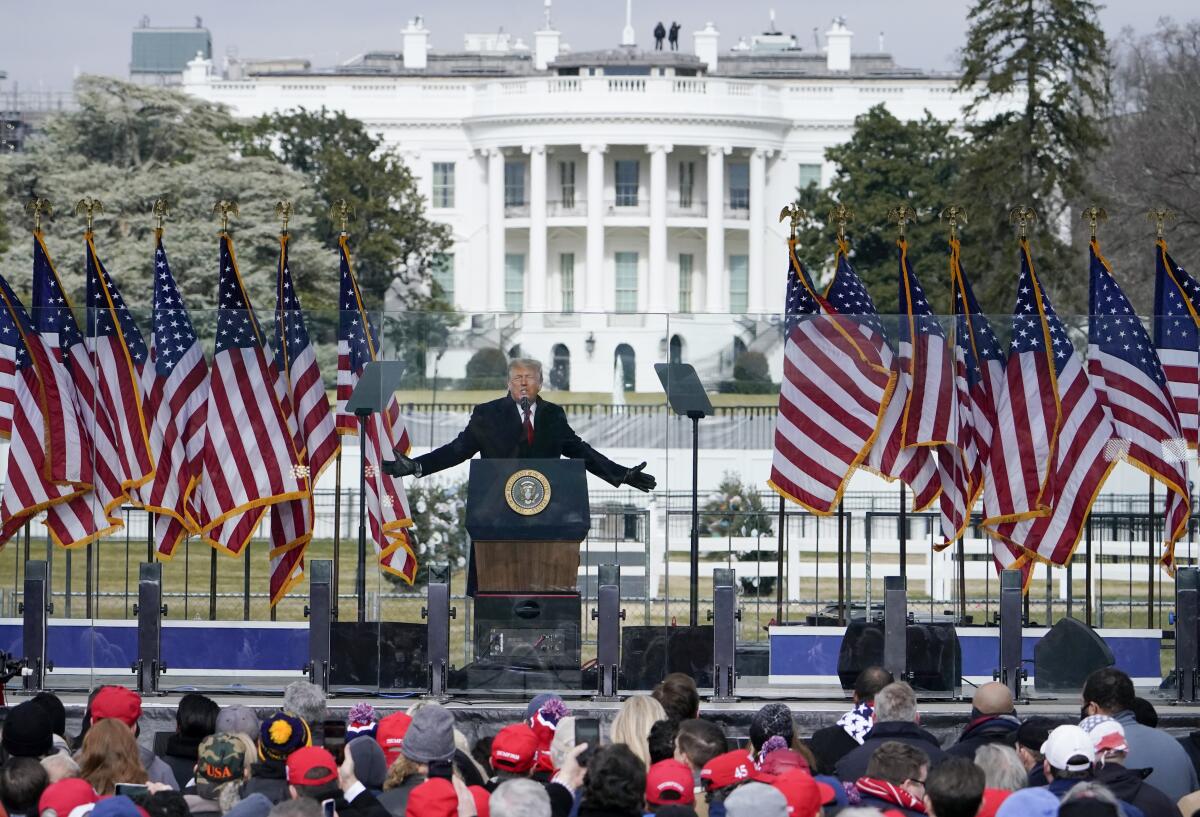Letters to the Editor: What the 1828 dictionary definition of ‘insurrection’ means for Trump

- Share via
To the editor: I possess a copy of Noah Webster’s 1828 dictionary of American English, one of the few dictionaries available when the 14th Amendment [adopted in 1868] was written. (“Can Trump be on the ballot in 2024? It can hinge on the meaning of ‘insurrection,’” Nov. 3)
It defines “insurrection” clearly, accurately, and authentically, as it was meant at the time:
“A rising against civil or political authority; the open and active opposition of a number of persons to the execution of law in a city or state. It is equivalent to sedition, except that sedition expresses a less extensive rising of citizens. It differs from rebellion, for the latter expresses a revolt, or an attempt to overthrow the government, to establish a different one or to place the country under another jurisdiction. It differs from mutiny, as it respects the civil or political government; whereas a mutiny is an open opposition to law in the army or navy. Insurrection is however used with such latitude as to comprehend either sedition or rebellion.”
The last sentence is important. It shows that the scope of insurrection is very broad. It includes insurrection itself, sedition or rebellion.
The lawyers on both sides of the argument over whether the 14th Amendment bars former President Trump from appearing on the ballot appear to be making up what they want “insurrection” to mean, whereas this dictionary clearly, accurately and authentically states its meaning at the time.
Let’s please insist that the lawyers adhere to the authentic and broad definition.
Wayne Howe, Irvine
..
To the editor: The 14th Amendment cites “insurrection or rebellion” as violations of the U.S. Constitution. As president, Trump took the oath to “protect, preserve and defend the Constitution of the United States.” Trump violated his oath by attempting to subvert the transition of office to President Biden, thus committing a rebellion against the Constitution.
Trump was informed by his U.S. Cybersecurity and Infrastructure Security Agency director that the 2020 election was the most secure in history. Trump’s attorney general at the time informed him there was no voter fraud that would overturn the election.
Notwithstanding being so informed, over the past three years Trump has claimed through the media, public appearances and rallies that the election was rigged and stolen from him by widespread voter fraud.
Trump’s acts of constitutional rebellion are contained in the Department of Justice and Georgia indictments. Those charges more than justify Trump’s disqualification from the 2024 election.
Joseph S. Avila, Montebello





